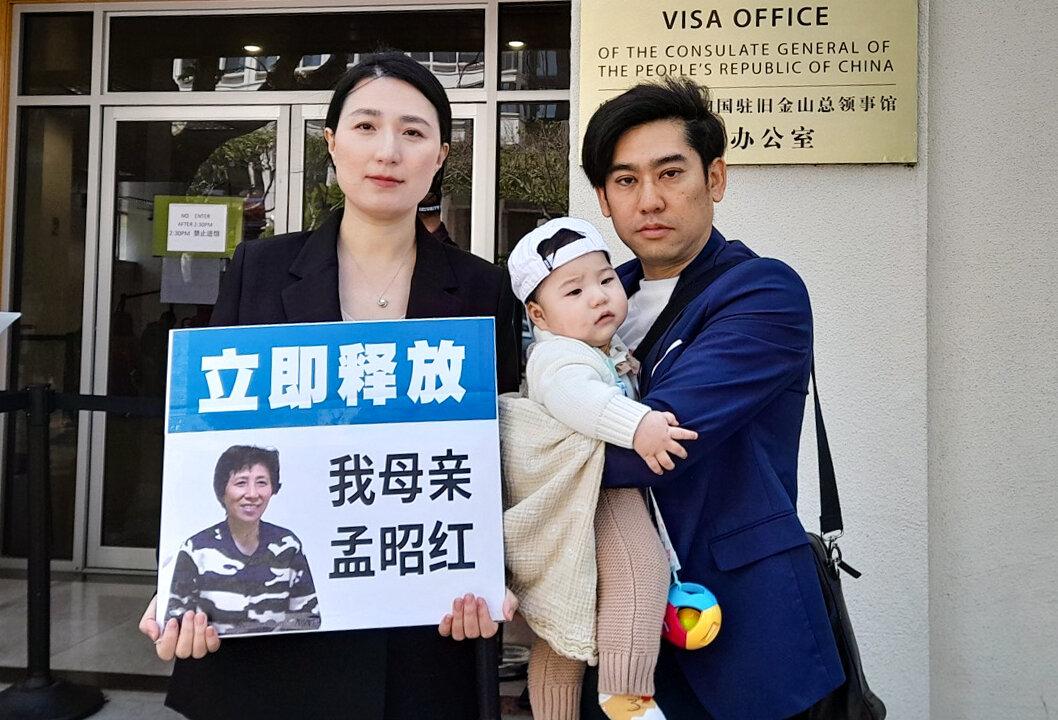In her 34 years, Doria Liu almost never saw her mother cry—not even when her mother recounted suffering harrowing torture at the hands of Chinese authorities in a bid to break her faith.
But during a video call on May 6, when Ms. Liu showed her mother a photo of her and her husband holding their 8-month-old son, the 68-year-old Meng Zhaohong began quietly wiping her eyes. The photo shows the couple beaming and wearing bright yellow outfits during a celebration of World Falun Dafa Day, the day marking the public introduction of their spiritual practice, Falun Dafa, also known as Falun Gong.
From an ocean away in San Francisco, Ms. Liu was at a loss for words.
The two are close, especially after Ms. Liu lost her father at the age of 10, but they haven’t seen each other since Ms. Liu escaped China eight years ago. In China, wearing the same bright yellow outfit, bearing the words “Falun Dafa is good” along with “truthfulness, compassion, tolerance”—the three core principles of the faith—could trigger an arrest.

Benign as they may be, those words are anathema to the Chinese communist regime, which for nearly a quarter of a century has waged a vicious war against the faith group.
Ms. Liu encouraged her mother, also a Falun Gong practitioner, to flee China: “When you have a chance, come at once.”
“OK,” responded her mother. It was late at night in the United States and the baby was fast asleep, so Ms. Meng hurried to end the call so as not to wake him.
Ms. Liu thought they would talk more the next day, but that never happened. Anxiety gripped her as her phone calls went unanswered for more than a month. She eventually learned that her mother had been arrested for talking to shoppers at a farmers’ market about Falun Gong and the persecution.
During an interrogation, police slapped Ms. Meng more than 20 times, then tormented her in a dark underground cell because the local prison refused to accept her, after a health screening revealed tuberculosis, high blood pressure, and other issues.
Ms. Liu counted that as the seventh time in 24 years that her mother had been arrested, merely for persisting in practicing her faith.
July 20th, 1999, was the day the Chinese regime launched its bloody eradication campaign on Falun Gong, a meditative practice embodying spiritual teachings along with slow-moving exercises. Before then, estimates put the number of adherents in the country at as many as 100 million. The ruling Communist Party had initially supported the practice, but eventually deemed its popularity intolerable, viewing it as a threat to the regime’s control over society.
Across the country, practitioners have suffered from arbitrary arrests, detention, surveillance, forced labor, violence, and even forced organ harvesting; nothing is off limits in the regime’s bid to wipe the faith from existence.

As part of its campaign, the communist regime blanketed media, textbooks, and the internet with disinformation maligning the practice, to turn public opinion against Falun Gong adherents.
The morning the full-scale persecution began, Ms. Liu, who was 10 at the time, went to meditate with about a dozen people at a local Falun Gong exercise site, which was housed in a police bureau in northern China’s Heilongjiang Province.
‘Living in Hell’
The hostility was pervasive and instantaneous.Down along the southeastern Chinese coast, Feng Liping, a pharmacy owner in the industrial hub of Shenzhen, encountered dozens of police surrounding her and other practitioners and taking photos as they practiced the Falun Gong exercises in a park. Soon after, police cars began to hover around Ms. Feng’s apartment building, and her pharmacy license was revoked.
That October, she traveled to Beijing to appeal to CCP leadership to end the persecution. She was arrested and placed in a detention center, where she was forced to make thousands of plastic flowers every day and endure insults from guards due to her faith. Ms. Feng miscarried her first child while in the facility.
Even after her release, surveillance and police harassment occurred daily. Four months after giving birth to a son in 2001, Ms. Feng fled her home after police threatened her with a two-year prison sentence if she didn’t sign documents to renounce her beliefs. But authorities tracked her down and, in 2002, sentenced her to three years in a labor camp.
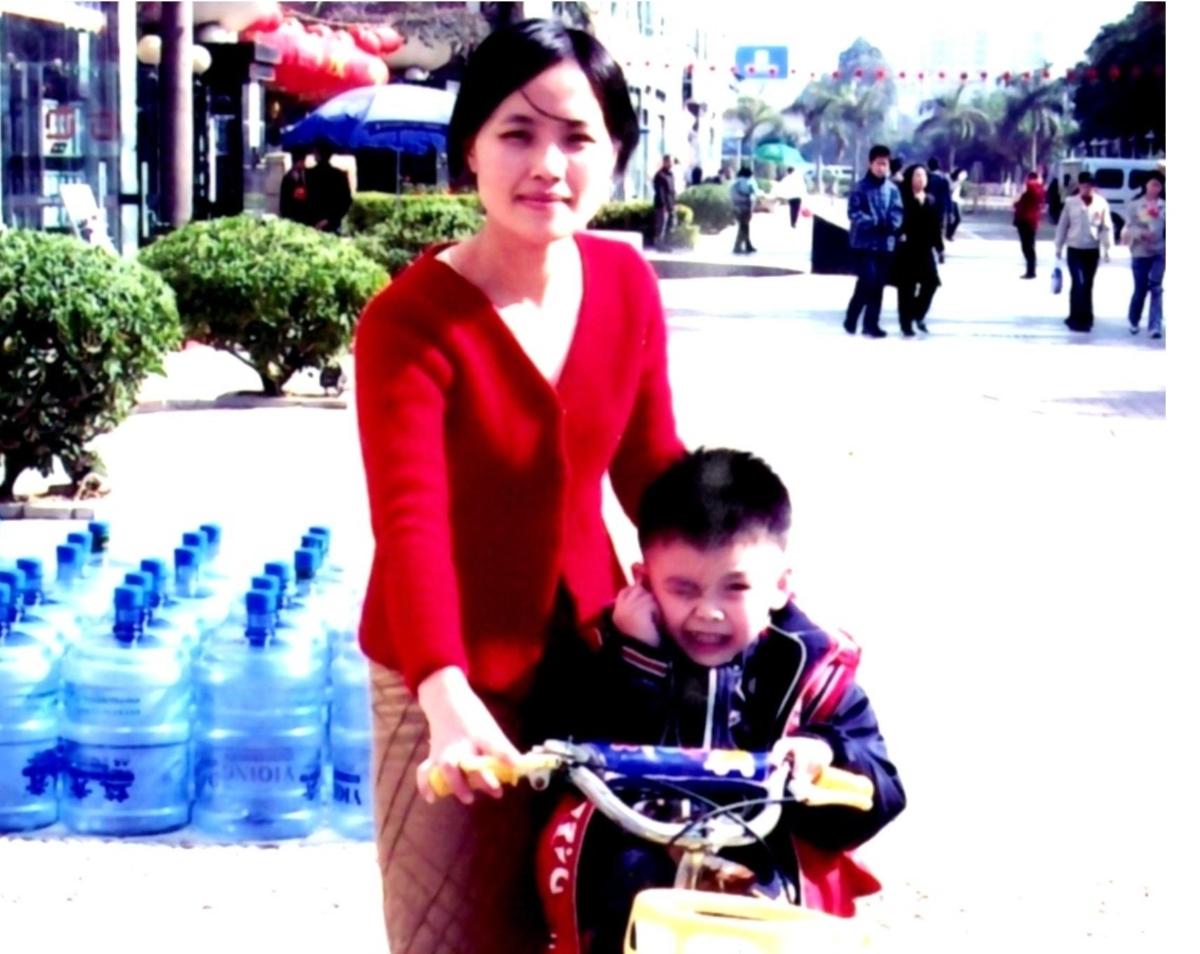
Ms. Feng never had high ambitions. She wanted a family, a place to live, and a job that could support both, but all three seemingly vanished overnight. At the labor camp, after a brutal beating, guards handed her divorce papers produced by her in-laws. They publicized it in front of a crowd of hundreds to humiliate her, then told her that they could “help her” if she “cooperated” with them and quit practicing Falun Gong.
She refused to do either. After continued pressure and more arrests, Ms. Feng’s health deteriorated and the heart problems she said had disappeared after practicing Falun Gong resurfaced. With help from overseas adherents, Ms. Feng escaped in 2008 to Thailand to reunite with her husband, who had fled a year earlier. Her plan was a secret, even to her parents, who only learned about it after she reached Thailand.
Until her escape, she said, she had been “living in hell.”
But the shadow of the persecution persists. For the past 11 years, Ms. Feng hasn’t been able to see her eldest son, now 23. Her second son, who was born in the United States and is now 10, has never met him.

Her parents were both sad and relieved to know she would no longer be in China with them.
Families Ripped Apart
With an estimated 1 in 13 people in China practicing Falun Gong in 1999, it’s hard to fathom the toll this sweeping persecution had on families.Xia Deyun, then an engineer for top oil producer Shengli Oil Field in eastern China, spoke of a sense of guilt even today toward her son, who was one month into high school when police put her in a labor camp and raided their home.
The teenager was so distraught that he sank into depression and stopped attending school for the entire year while Ms. Xia was behind bars. He spent most days in his room and avoided seeing anyone. Sometimes, he would vomit for no apparent reason, according to Ms. Xia, who fled to New York in 2021. Her son now lives in Canada.
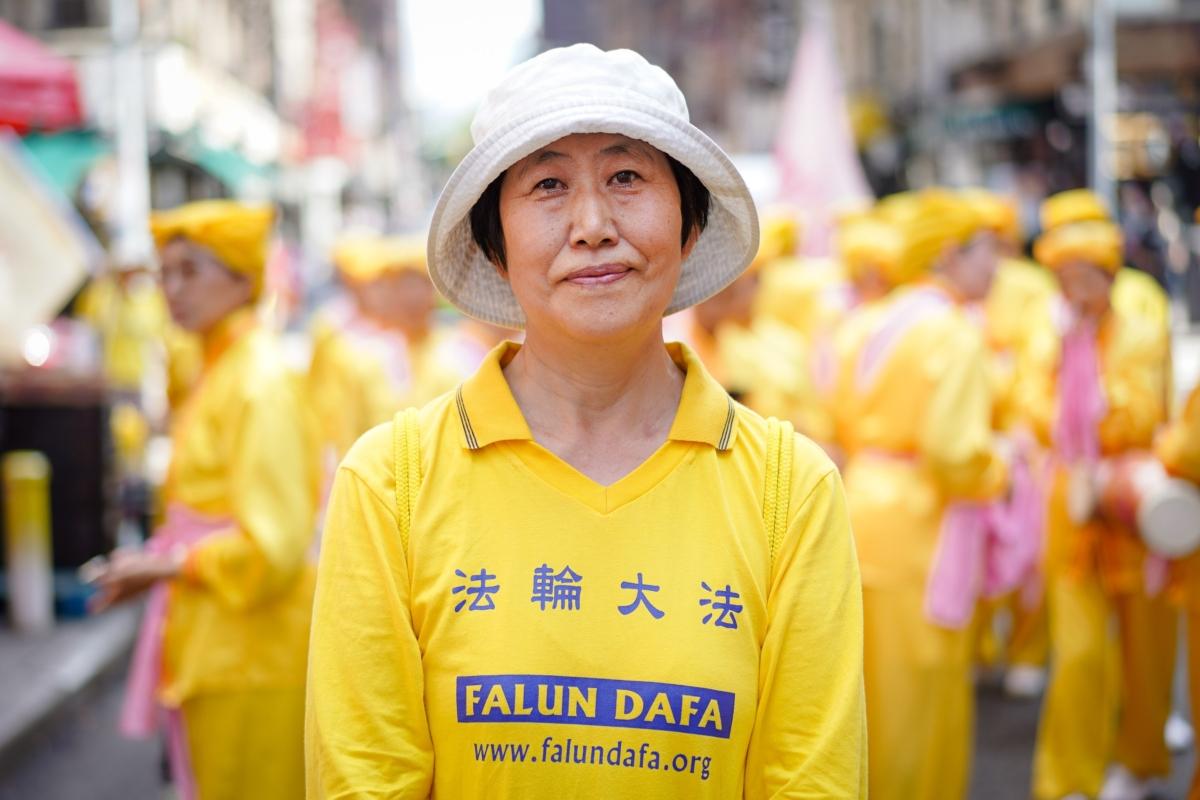
The first time he saw her after she was freed from detention, he held her tight without saying a word.
A Dumpling Plate
In 1999, Ms. Liu was still in elementary school—too young to make sense of all that was going on.“Everyone was practicing [Falun Gong], be it in the parks or at school, everything was fine. Why would they suddenly declare it not good?” she recalled thinking.
Winter in her hometown in Tahe, a county in the far north of China’s northernmost province Heilongjiang, was numbingly cold. That winter, she and her grandparents made dumplings from scratch and took warm clothes to see her imprisoned mother, who, like Ms. Feng, was arrested for petitioning the Chinese leadership over Falun Gong. The police sneered at the food, and flatly refused to let them meet with Ms. Meng. Neither would they agree to take anything to her.
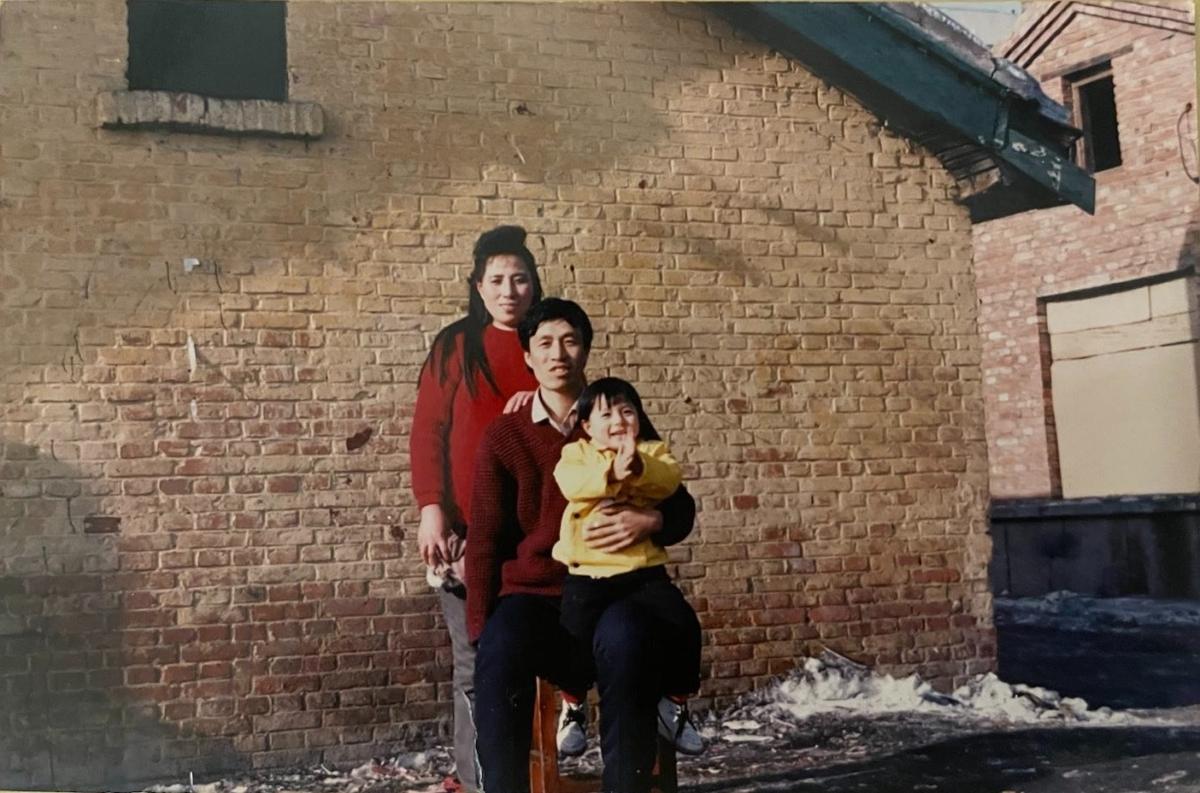
Keeping Up the Fight
Ms. Liu lived in China under the cloud of persecution for 16 years. During that time, she and her mother were together for no more than five years in total. More than half of the time, Ms. Meng was in jail, and when she wasn’t, she was often trying to dodge authorities’ relentless pursuit.While detained, Ms. Meng had been force-fed concentrated saline water, had her clothes stripped off, and was beaten while being tied to a metal chair, during which her tormentor broke her ring finger. In 2012, after four years of torture in prison, Ms. Meng weighed just 77 pounds and couldn’t get up from bed without support. Her friend jailed at the same facility didn’t make it out.
When Ms. Liu helped her mother bathe, it pained her to see the wounds and scars that covered her body.
“I can’t imagine how she survived,” Ms. Liu said.
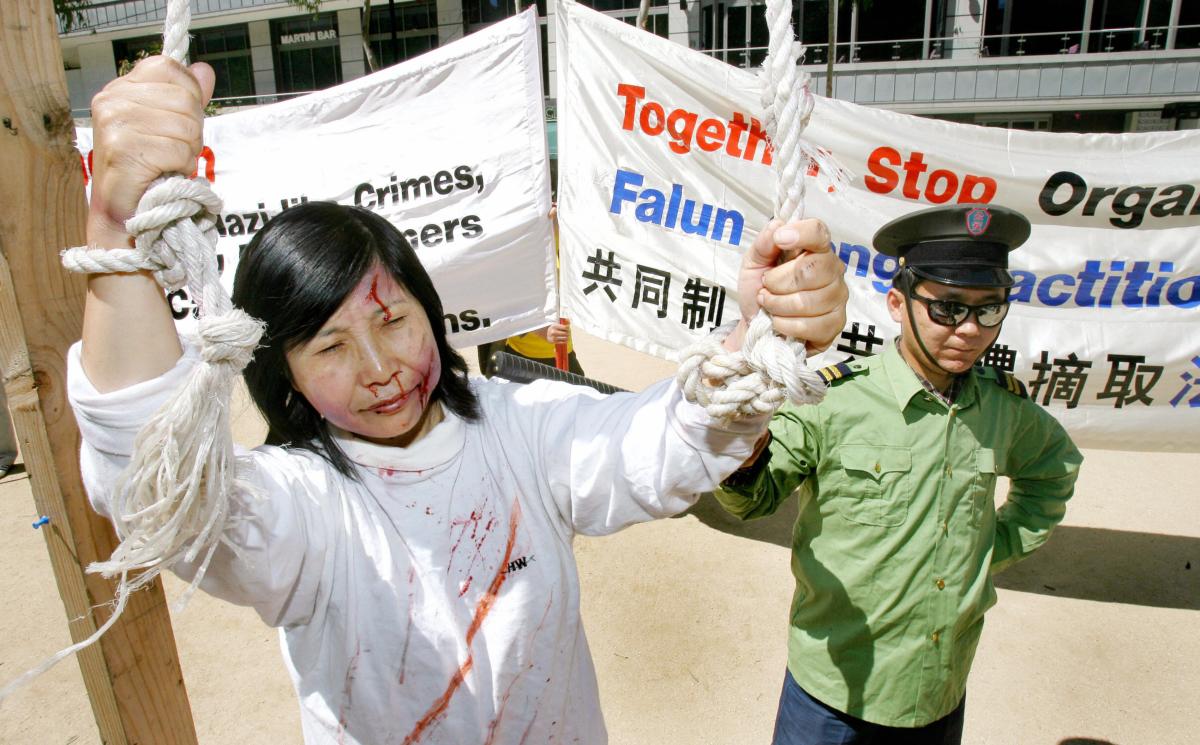
Recently, Ms. Liu hasn’t been able to sleep before 3 a.m. A helpless feeling hits her as she still lives under the shadow of the ongoing persecution, no matter how far she is from China’s shores. Just last week, on July 14, authorities arrested another Falun Gong adherent who helped find a lawyer for her detained mother.
But Ms. Liu vows to do everything she can from the United States to secure her mother’s freedom and bring the abuses to an end.
Meanwhile, she hopes her mother will “hang in there.”
Her mother’s tiny 5-foot-2 frame “has withstood so much,” she said.
“Every day, I worry if I can speak to her again.”
Ms. Liu continues to use her voice and her freedom in America to raise awareness of the evil in China.
“It’s about fighting for the rights of everyone,” she said. “Persecution is never too far away.”
